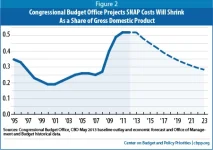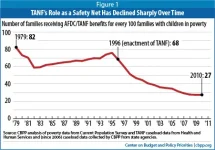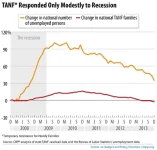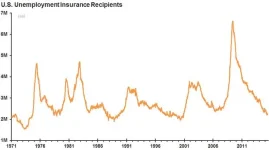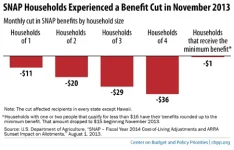Those people should qualify for benefits based upon their disability, and not their means.
Should someone unable to work but with considerable resources be eligible for benefits?
>>A higher min wage, lower taxation, or better yet, more competition for workers between employers, would fix that better than government freebies.
I'm not sure how the last of those three would work, but I would welcome the first two.
>>I don't have an issue with that, but such benefits [education and job-training] don't need to be means tested.
Again, wouldn't that just drive up the cost of the program?
>>Anything can be ended
Well, not
anything. For example, sometimes we're told that "Windows Cannot End This Program."
>>I do think they will have to be phased out over several years to allow people to adjust.
Well, assuming that alternative methods of dealing with these issues would be phased
in.
>>My issue isn't with government benefits, it's with the means testing of such benefits. It locks people into poverty. Maybe not everyone, but there is a segment of our population which intentionally does not strive for self dependence, because if they achieved that, they would have to work harder for the same net standard of living (because they would have lost their means tested benefits).
I think the number in that "segment" must be very small. This sounds like a mental health issue to me. I would seek to address it that way.
>>if one person receives a particular benefit, then everyone should recieve that exact same benefit.
I've heard you say this a number of times. I see fairness as one of a collection of goals that includes things like efficiency and effectiveness.
Some people get a tax benefit on mortgage interest payments. But some don't, and that drives up their housing costs. Is that fair?
You can deduct health insurance premiums that exceed ten percent of your adjusted income. If those premiums are higher because of choices you make about, say, smoking, which can drive them up by around 20% (I've heard 50% under the ACA), is it fair that you can perhaps have Uncle Sam subsidize yer unhealthy habit?
Is it fair that my taxes go to help people who build expensive homes in areas that are prone to disasters like floods, hurricanes, tornadoes, and earthquakes?
You can deduct moving expenses (packing, storage, insurance, transportation, lodging) if you take a job more than fifty miles from yer home. There’s no limit to the deduction. Is that fair to those who stay at their job?
People can get special treatment on paying back student loans if they enter certain professions or fulfill certain requirements. Is that fair?
Some people handle their finances very irresponsibly and end up declaring bankruptcy (a "benefit" in a way), but you can't do that with student loans. Is that fair?
I could keep going, but you get the idea.
>>Does it even make a lick of sense that someone who pays a pretty darned good bit in taxes should be denied any of the government benefits that his taxes pay for?
Yeah, sure, depending on the circumstances. Why should wealthy people get SNAP benefits, subsidized healthcare, energy assistance, etc?
>>BIG is probably the best solution.
A lot of times we can't achieve the BIG, at least not in the short or even medium term. I absolutely want progress, but in many situations incrementalism can be unavoidable. Like when yer building Rome.

